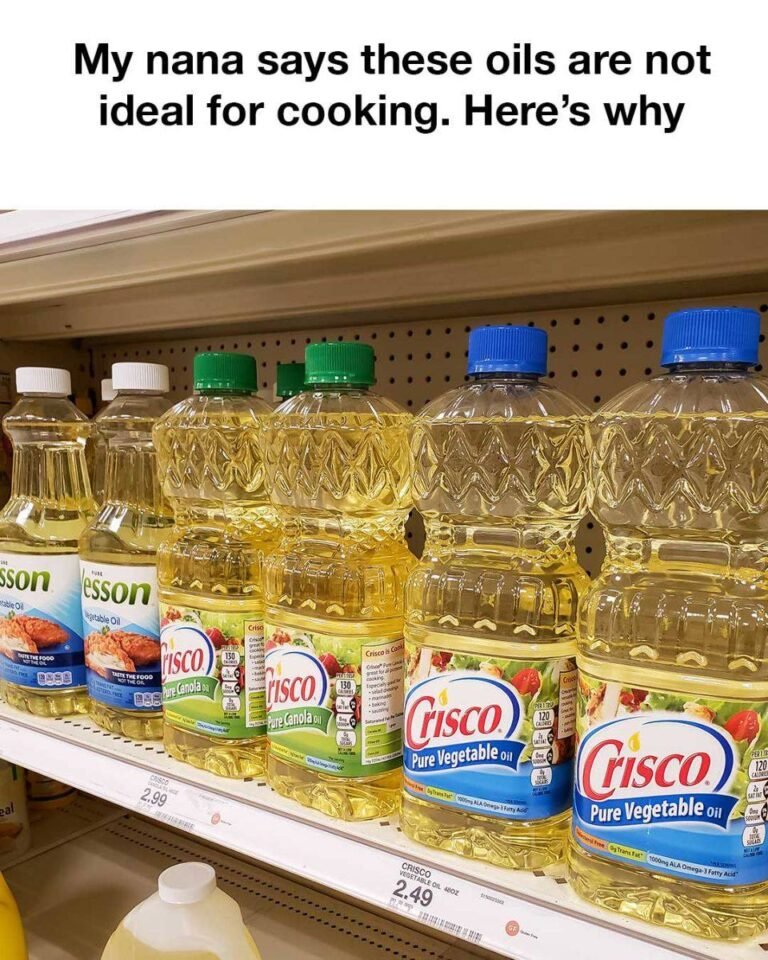ADVERTISEMENT
Cooking oils are a staple in kitchens around the world, used for frying, baking, sautéing, and dressing salads. However, not all oils are created equal, and their impact on health can vary significantly. My nana always emphasized the importance of choosing the right oils for cooking, warning against the frequent use of certain oils like vegetable, canola, and corn oils. Understanding the health implications of these oils can help us make better dietary choices.
Understanding the Basics of Vegetable, Canola, and Corn Oils:
Vegetable, canola, and corn oils are commonly used in cooking due to their affordability and availability. Vegetable oil is a generic term that often refers to oils derived from various plant sources, including soybeans. Canola oil is extracted from the seeds of the canola plant, a type of rapeseed. Corn oil is made from the germ of corn kernels. Each of these oils has unique properties and nutritional profiles that influence their suitability for cooking.
Nutritional Profile of Vegetable Oil:
Vegetable oil typically contains a high percentage of polyunsaturated fats, including omega-6 fatty acids. It is often low in saturated fats and contains some monounsaturated fats. The exact composition can vary depending on the source of the oil. While it provides essential fatty acids, the high omega-6 content can be a concern if consumed in excess, as it may contribute to inflammation in the body.
Nutritional Profile of Canola Oil:
Canola oil is often praised for its relatively low saturated fat content and higher levels of monounsaturated fats, which are considered heart-healthy. It also contains omega-3 fatty acids, albeit in smaller amounts compared to omega-6 fatty acids. Canola oil is often marketed as a healthy option due to its favorable fat profile, but concerns about its processing and potential genetic modification remain.
Continued on the next page …..
ADVERTISEMENT
